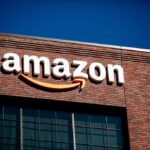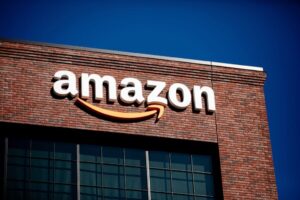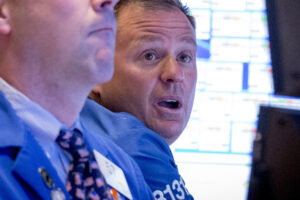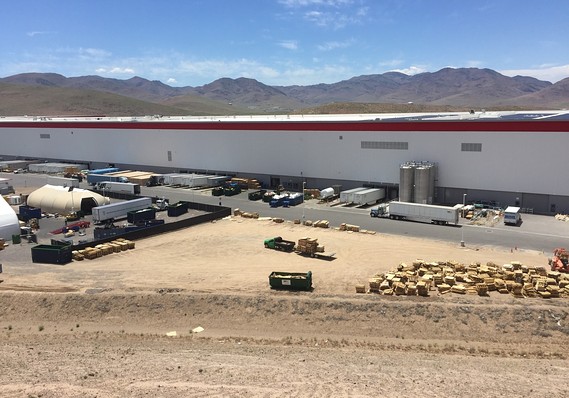 Barry Wood
Barry Wood
SPARKS, Nev. — What Tesla TSLA, +1.02% has built in the Nevada desert is impressive. Five years ago, the Gigafactory was merely an expanse of rocks and dirt, CEO Elon Musk bragged to shareholders on June 11.
Today it is a sprawling three-story red and grey structure the size of a dozen football fields that, when completed, aims to be the world’s biggest building. It is crammed top to bottom with automated machines, snaking assembly lines, engineering rooms, and 13,000 busy people working for Tesla and its Japanese partner. Panasonic 6752, +0.46% .
This is where half of the world’s electric-vehicle batteries are produced. Panasonic, occupying 30% of the building, produces the cells, 4,000 of which go into a pan beneath the floor of every Tesla Model 3 electric car. It’s a three-shift, 24-hour operation.
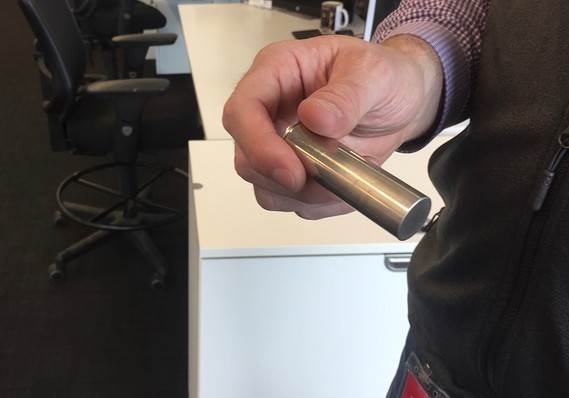 Barry Wood
Barry Wood
Gigafactory is what South African-born Musk calls the machine that builds the machine. Density—efficient use of space — is driving down costs.
Production begins on the third floor while finished panels emerge at the bottom. Each day, 1,000 car sets go by truck five hours to the Tesla car assembly plant in Fremont, Calif., on San Francisco Bay. Plant manager Chris Lister, Tesla’s vice president of operations, calls the Gigafactory a self-contained, vertically integrated, manufacturing facility.
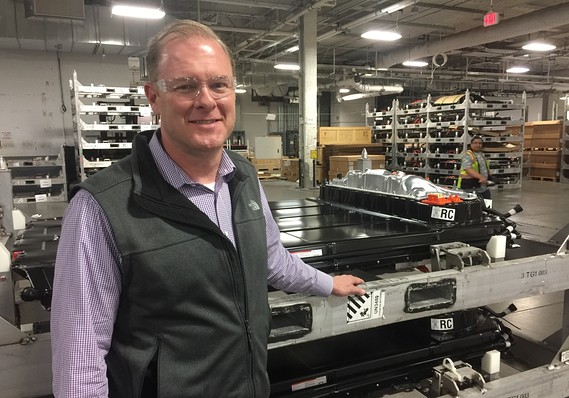 Barry Wood
Barry Wood
The Gigafactory is a huge roll of the dice for the 15-year-old company that has yet to register an annual profit and which, analysts say, will lose money again this year.
Many big investors have shorted Tesla stock, expecting the company to fail. Other big money investors and enthusiasts take the opposite view, saying Tesla is winning and leading the transition to sustainable energy.
Engineering challenges at times create tension between Panasonic and Tesla. Musk is pushing for greater energy density in cells, which would boost vehicle range and increase power. Tesla has not yet selected Panasonic to produce cells for its vast plant under construction in China.
Also read: Panasonic Is Reportedly Nixing Expansion Plans for a Big Battery Factory
For its part, Panasonic wants Tesla sell more cars before it commits to further expansion in Nevada. Car sales this year have not matched expectations.
In 2018 Tesla doubled the size of its fleet. But Musk and his deputies emphasize there is a huge untapped market. Electric cars account for only 1% of all cars on the road, and 60% of all electric vehicles are in China. The new Tesla plant will be in Shanghai.
Another production plant is planned for Europe, its location to be announced by the end of this year.
Musk told shareholders that Tesla’s Model Y, a mid-size sport utility vehicle, will go into production next year. Both a semi-truck and a pickup — which Musk says will combine the attributes of a Ford F-150 and a Porsche 911—are in the works.
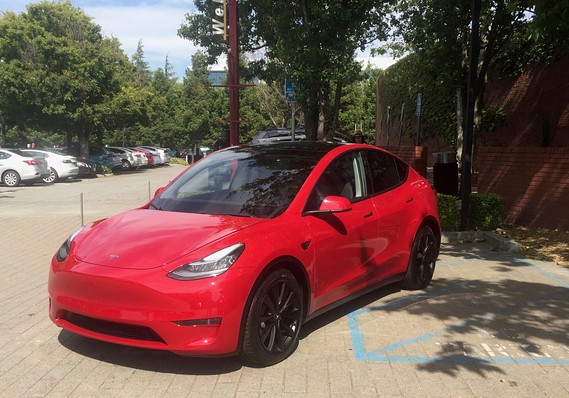 Barry Wood
Barry Wood
Musk told shareholders that lowering the cost of batteries is critical. Boosting range and reducing charging time are huge engineering challenges. Vehicle range, said Musk, will soon expand to 400 miles (644 kilometers). The company dismisses reports that lithium is in short supply and says car sales currently exceed car production.
Having put on weight over the past year ago and looking somewhat stressed, Musk said service and charging stations are the key to sales.
On both counts, he said, Tesla is winning. In some markets Tesla personnel come to owners’ homes to change tires or do minor repairs. The number of supercharger stations is doubling.
I traveled from the annual meeting in the Silicon Valley to Sparks, Nev., as a passenger in a friend’s Model 3. Acceleration and comfort were first class, even awesome. It is indeed a computer on wheels. But autopilot remains a work in progress.
On the east coast of the U.S., Tesla naysayers are in control. Here on Tesla’s home ground, the enthusiasts and believers carry the day.



